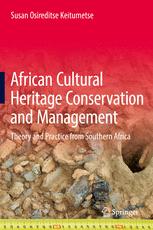

Most ebook files are in PDF format, so you can easily read them using various software such as Foxit Reader or directly on the Google Chrome browser.
Some ebook files are released by publishers in other formats such as .awz, .mobi, .epub, .fb2, etc. You may need to install specific software to read these formats on mobile/PC, such as Calibre.
Please read the tutorial at this link: https://ebookbell.com/faq
We offer FREE conversion to the popular formats you request; however, this may take some time. Therefore, right after payment, please email us, and we will try to provide the service as quickly as possible.
For some exceptional file formats or broken links (if any), please refrain from opening any disputes. Instead, email us first, and we will try to assist within a maximum of 6 hours.
EbookBell Team

0.0
0 reviewsFor a long time, resource conservationists have viewed environmental conservation as synonymous with wilderness and wildlife resources only, oblivious to the contributions made by cultural and heritage resources. However, cultural heritage resources in many parts of the developing world are gradually becoming key in social (e.g. communities’ identities and museums), economic (heritage tourism and eco-tourism), educational (curriculum development), civic (intergenerational awareness), and international resources management (e.g. UNESCO). In universities, African cultural heritage resources are facing a challenge of being brought into various academic discourses and syllabi in a rather reactive and/or haphazard approach, resulting in failure to fully address and research these resources’ conservation needs to ensure that their use in multiple platforms and by various stakeholders is sustainable. This book seeks to place African cultural heritage studies and conservation practices within an international and modern world discourse of conservation by presenting its varied themes and topics that are important for the development of the wider field of cultural heritage studies and management.